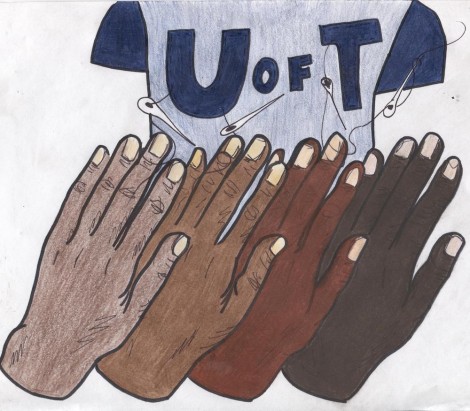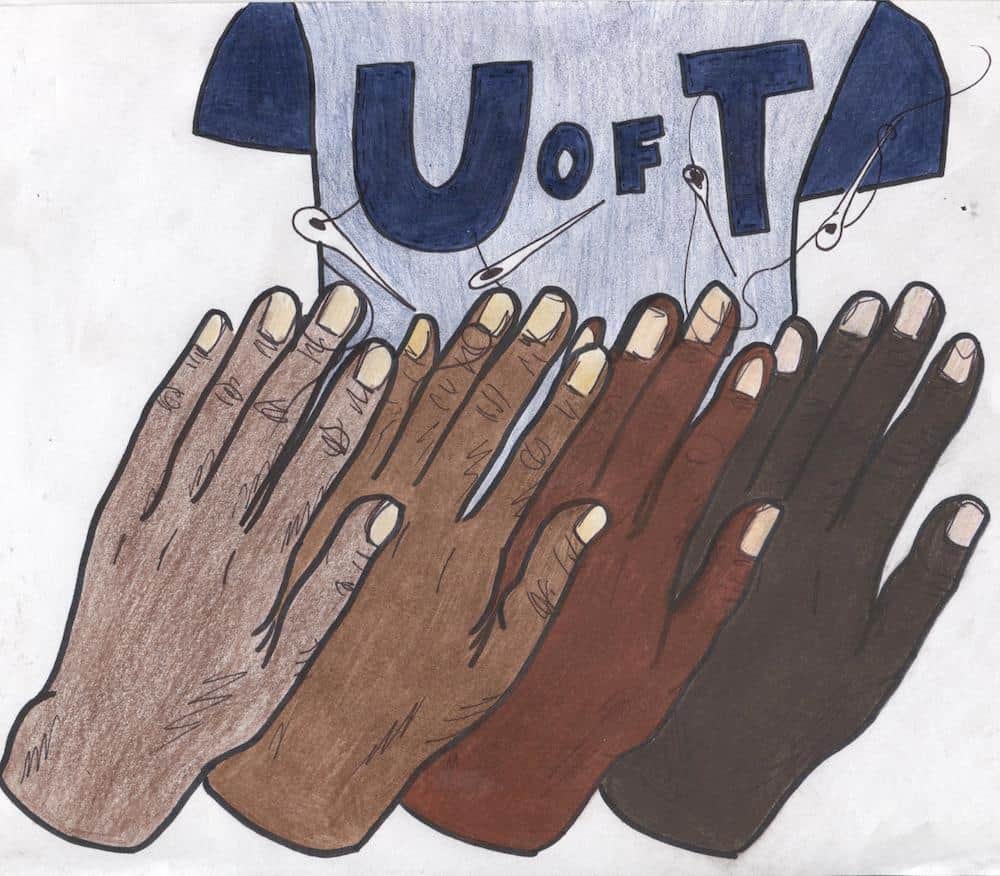In a recent report, Worker Rights Consortium (WRC) reprimanded Gildan Activewear, a supplier for the University of Toronto’s name-branded apparel. According to the report, major garment factories in Haiti — including those subcontracted by Gildan — are systemically paying their workers 32 per cent less, on average, than the minimum wages of $7.22 US per day. Gildan has subsequently promised to remedy the situation.

CATHARINE MANSOURI/THE VARSITY
It seems outrageous for a university that places such a premium on ethical practices such as accessibility services and green initiatives to be unconcerned by the situation. However, one must realize that it is a lot easier to spend money on solar panels than to give it to Haitian workers. The problem of endemic low wages in the garment industry relates more to the economics of supply and demand than to the principles of ethics. Ultimately, it all boils down to the oversupply of cheap labor in the developing world.
To illustrate the situation, consider the following thought experiment: suppose students all agree to pay $1 extra for t-shirts. Further suppose that the U of T bookstore passes that dollar on to the factory owners, with the condition that it be paid to the workers. Haitian workers currently receive $2.52 for every box of 72 t-shirts they process. This $1 premium could easily double their daily wages, even if only a fraction is passed onto them. However, it’s unlikely they will ever see a cent of this money. Haiti has an unemployment rate of 40.6 per cent. With such an oversupply of cheap labor abound, the factory owners have zero incentive to increase the current wages.
Furthermore, there is little infrastructure in place to enforce the condition that the money be passed on, or to even implement the local minimum wages law, as the WRC reports point out. Even if we take the rampant corruption out of the equation, garment factory owners wield tremendous lobbying power in Haiti. Haiti’s top three exported goods are t-shirts, sweaters, and men’s suits — a combined 76 per cent of its total exports. With that much of the labor market share in hand, factory owners can easily defy the government by simply threatening to relocate. Haiti cannot afford to lose this industry. A $7.22 per day job is awful; having no job at all is far worse.
The university should pressure Gildan to ensure that its subcontractors abide by local minimum wages law. However, the university should also consider moving to fair trade apparels. The fair trade model would require exporters to pay a minimum price for the goods, and an additional premium that will be used to improve the local community.
Looking at pictures of the shacks many Haitians live in — and even just imagining a life on $7.22 a day — should be enough to convince anyone to pay more for their clothes. However, the economic reality of the situation is a lot more complex than just paying up. The root of this problem of oversupply of cheap labor lies in the extreme poverty of Haiti. To do its part for the plight of the Haitian people, U of T could consider switching to fair trade apparel. After all, it isn’t without precedent; York University made the switch in 2011.
Li Pan is a second-year student majoring in economics and mathematics.


